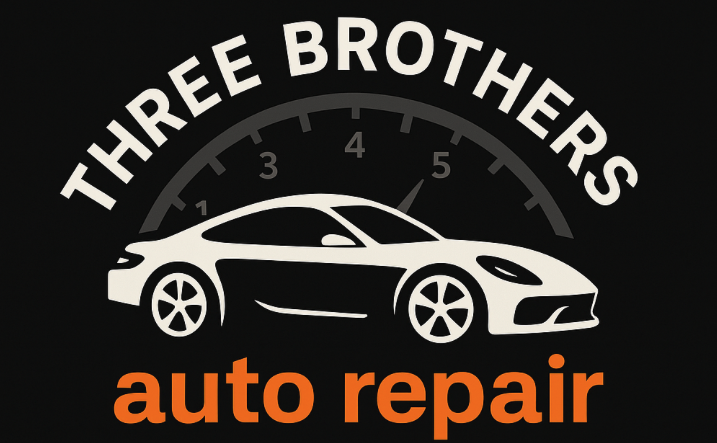At Three Brothers Auto Repair in New Jersey, we often see drivers frustrated by a car alarm that won’t stop blaring. A repeatedly sounding alarm can drain your battery and disturb neighbors. It’s important to know that false alarms aren’t always caused by theft — most often an electrical or environmental issue is at fault. For example, common triggers include low battery voltage or faulty sensors. Understanding these causes can help you avoid frustration and unnecessary stress. In this article, we explain the typical culprits — from weak batteries and worn key fobs to weather-related effects — so you can keep your alarm reliable and know when to bring your car to us for help.
Common Causes of Repeated Car Alarms
When a car alarm goes off without an obvious cause, several issues are usually to blame. We frequently find that common triggers include:
-
Weak or dead car battery: A low-voltage battery may not provide steady power to the alarm system. In fact, a failing battery can cause the alarm to chirp or siren unexpectedly (often at night). We test battery voltage whenever an alarm issue comes in, since replacing a weak battery usually stops the false alarm.
-
Faulty or dirty sensors: Many cars have switches on doors, the hood and the trunk that tell the alarm they’re closed. If these latches are corroded, misaligned or coated in ice or dirt, they can falsely signal that someone is opening the car. We inspect all sensor wiring and clean or adjust any latch switches. Dirty or misaligned sensors often misfire and cleaning them can prevent false alarms.
-
Worn key fob or remote: A key fob with stuck or worn buttons (or a very weak battery) can send erratic signals to the car. A malfunctioning remote often causes the alarm to blare at strange times. We advise replacing the fob’s battery or even the fob itself if it’s damaged. In many cases, simply swapping in a fresh key fob battery will fix the issue.
-
Aftermarket alarm issues: If the car has an added alarm system, a poor installation can be the culprit. Loose wires, incorrect connections or cheap components often lead to random alarm bursts. A badly installed aftermarket alarm can cause the system to trigger at inconvenient times. In our shop we will check the wiring and modules of any non-factory alarm, since repairing or reinstalling it usually stops the false triggers.
-
Environmental triggers: Sometimes the cause is simply the weather or location. Strong gusts of wind, heavy rain, or even large vehicles passing by can jostle a parked car. If the alarm sensitivity is set too high, these harmless vibrations can mimic a break-in and set off the alarm. We recommend parking in sheltered spots when storms hit and checking if the alarm’s sensitivity can be adjusted so that it only sounds for real threats.
Troubleshooting and Fixing False Alarms
We encourage drivers to try some simple checks and fixes before panic sets in. Often the issue can be resolved without expensive repair:
-
Replace the key fob battery: The first thing we do is inspect the keyless remote. If its battery is low, the fob can send mixed signals and trigger the alarm. Replacing the small battery in the fob (or carrying a spare) is quick and often fixes the problem. We’ve seen many alarms stop acting up as soon as the fob’s battery is refreshed.
-
Test and charge the car battery: We always test your car’s main battery voltage. A weak car battery can cause strange electrical behavior, including random alarms. If the battery is below its proper voltage, we’ll charge it or replace it. Replacing an old battery often stabilizes the alarm system immediately.
-
Inspect and clean sensors: Next, we open and close each door, hood and trunk manually. A sensor that’s not resetting properly can keep the alarm in “armed” mode. We clean corrosion and debris from the latch switches and test them. Cleaning these components usually prevents them from falsely tripping the alarm. We also check any glass-break or motion sensors; if found faulty, we recommend replacement.
-
Reset the alarm system: A simple reset can stop a whining alarm. We often lock and unlock the doors with the key (or use the ignition key in the driver’s door) to reset the alarm module. This basic step can silence the alarm and reset its sensors. It’s a good trick any driver can try if the alarm starts blaring.
-
Professional diagnostic: If the alarm still misbehaves, it’s time to bring the car into the shop. We have scan tools and wiring diagrams to pinpoint issues a normal mechanic might miss. A thorough check of the alarm control unit, wiring harnesses and all sensors will reveal the root cause. Fixing underlying wiring or sensor faults is the best way to eliminate repeat alarms. In practice, we’ll repair or replace any defective parts so your alarm only sounds when it should.
Preventing Unwanted Alarms in NJ Weather
New Jersey’s climate can be tough on car alarms. Our team recommends these preventive steps to keep false alarms at bay:
-
Park in sheltered spots: If possible, park in a garage or under cover during bad weather. Strong winds, hail or passing trucks can physically jar a car. Since these forces can sound a sensitive alarm, avoiding extreme conditions helps. Even shifting parking direction (so the wind hits the car’s side instead of nose/head-on) can reduce false triggers.
-
Keep sensors clean and dry: Road salt, snow and ice in winter can jam or corrode latch switches. After a storm, clear snow and ice from the doors and hood latches. We even spray on a moisture-displacing lubricant or protective grease to prevent rust. Dry, clean sensors won’t falsely signal an open door. (One tip is to keep the interior dry too — for example, make sure no puddles are inside from wet shoes that might confuse a motion sensor.)
-
Maintain battery health: Cold snaps put extra load on the battery. We recommend charging the battery or replacing it if it’s more than a few years old. A healthy battery provides steady voltage, preventing alarms from waking up when voltage sags. Likewise, avoid leaving key fobs outside or in very cold temperatures; always carry spares of both car and fob batteries in winter.
-
Adjust alarm sensitivity: Some alarm systems let you tweak sensitivity settings. If yours seems too twitchy (going off from a simple bump or distant noise), ask us about tuning it down. Proper adjustment ensures small vibrations won’t trigger a full alarm. Check your alarm’s sensitivity level if it frequently goes off due to minor disturbances. We can help reprogram or calibrate many factory alarms to suit your parking environment.
-
Double-check locks: Before walking away, always use the key fob to lock every door, and pull on the handles to verify they’re latched. If you have a flashing security light on the dash, watch for it — if it doesn’t blink, the alarm might not have armed properly. We remind every customer to test this, since an unsecured door or window can keep the alarm on standby and lead to continuous false alarms later.
Common Alarm Causes and Fixes Comparison
For a quick overview, here’s a comparison of frequent alarm triggers and recommended actions:
| Trigger / Cause | Symptoms | Recommended Action |
|---|---|---|
| Weak Car Battery | Alarm sounds late at night; car won’t start easily | Test battery voltage; recharge or replace battery. |
| Door/Hood Sensor Fault | Alarm blares when parked; often linked to a specific door or hood movement | Inspect and clean latch switches; replace any damaged sensor. |
| Key Fob Malfunction | Alarm goes off with no one near car; sticky buttons or no indicator lights | Replace the key fob battery (or the entire remote). |
| Aftermarket Alarm Issues | Random alarm bursts with no clear pattern | Have a technician inspect and reinstall the alarm wiring if needed. |
| Environmental Factors | Alarm triggers in wind/rain or heavy traffic | Park in sheltered areas; adjust alarm sensitivity if possible. |
Keeping Your Car Alarm Reliable
A car alarm that won’t quit can be more than an annoyance — it can drain your battery and upset neighbors. By understanding and addressing the usual culprits — weak batteries, worn sensors, faulty remotes or high sensitivity — you can eliminate most false alarms and keep your security system working as intended. We at Three Brothers Auto Repair want our New Jersey customers to have peace of mind. Whether it’s replacing a worn battery, cleaning a stubborn sensor, or adjusting your alarm’s settings, regular maintenance goes a long way. In fact, experts point out that dirty sensors and weak fobs are often to blame for repeat alarms — issues our technicians can fix. If your car’s alarm still misbehaves after basic fixes, bring it to us for a full diagnostic. Our experienced team will pinpoint the problem and restore your alarm to reliable operation. A properly functioning alarm is a crucial part of your car’s security, and we’re here to ensure it only sounds when it really should. Drive safely and park confidently knowing your alarm will behave when you need it.

